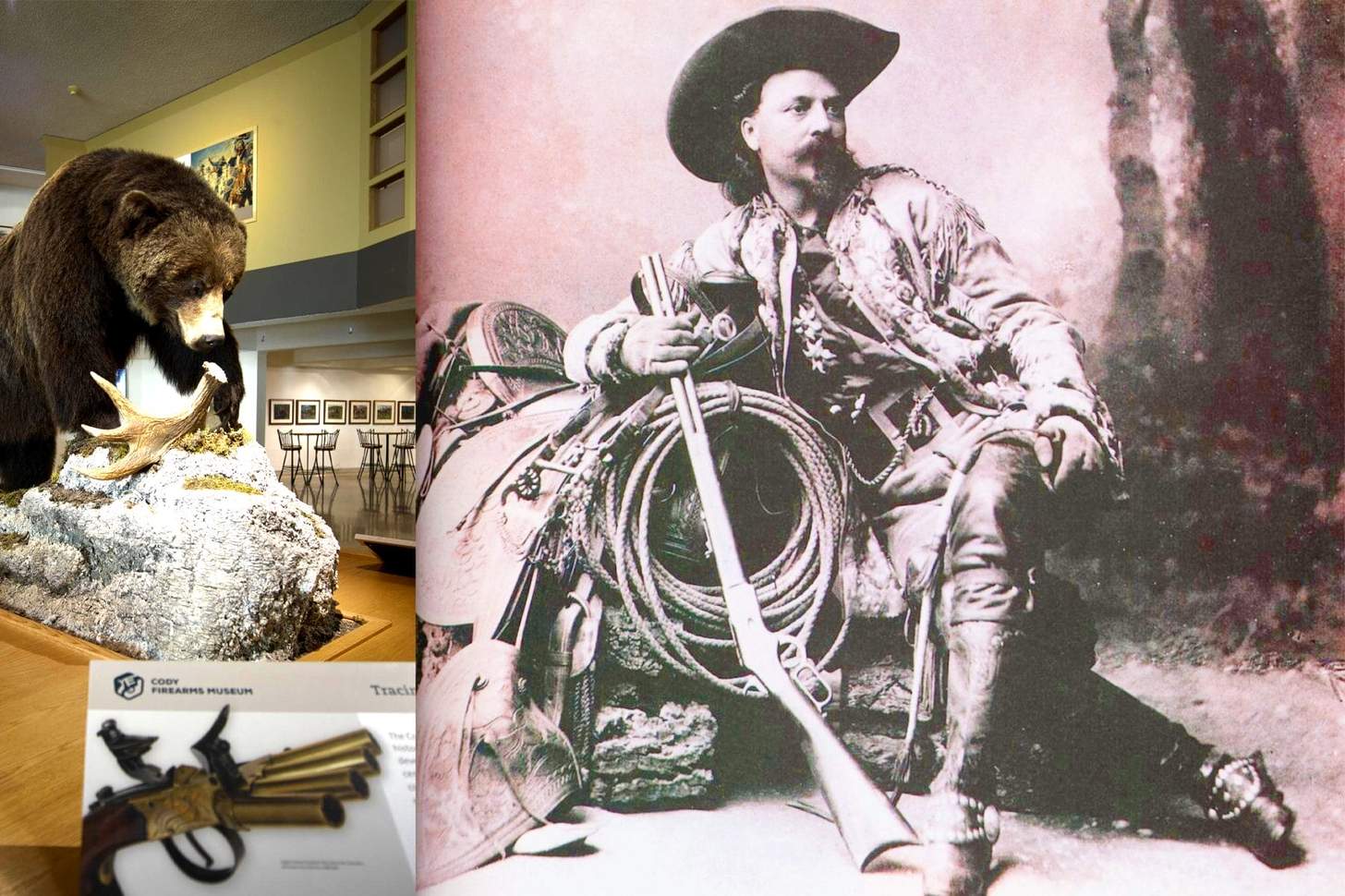This content is sponsored by GunBroker.com
With more than 7,000 firearms in the collection of the Cody Firearms Museum at the Buffalo Bill Center of the West, it’s really easy to get overwhelmed by the sheer number of guns being presented to you. As a result, it can be easy to miss things. So, this is a list of five must-see guns within the Cody Firearm Museum's galleries.
King Louis XIII’s Waterfowl Gun
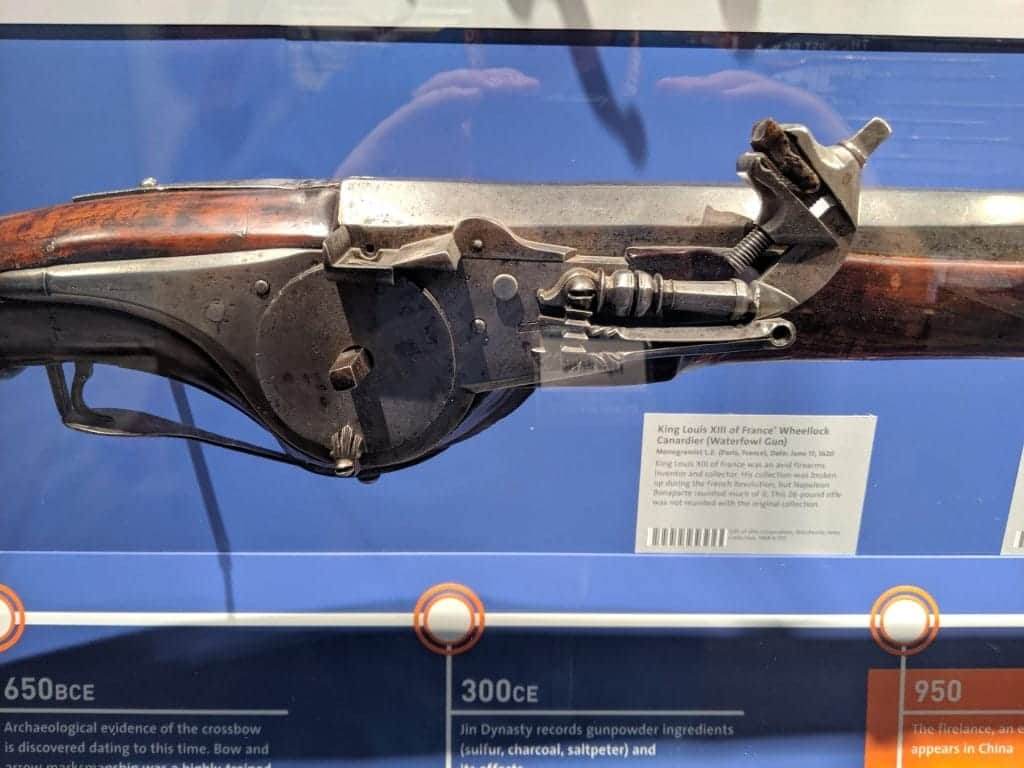
Did you know that King Louis XIII of France (1601-1643) was an avid firearms inventor and collector? Well, now you do. Like many royals, he also enjoyed hunting and, undoubtedly, used this canardier, or waterfowl gun in English, to knock plenty of waterfowl out of the sky.
It’s not uncommon for firearms to be marked with the year in which they were made, but this gun takes it a step further. The lock is actually marked with the month and day as well! We know that this piece was made on June 17, 1620. To put that into historical context, the Pilgrims wouldn’t leave for the New World for another three months after this gun was made.
Louis XIII’s gun collection was quite extensive and managed to stay intact for almost a century and a half after his death. Like many things related to the monarchy that were dismantled during the French Revolution in the 1790s, Louis XIII’s collection was broken up and the pieces were scattered throughout the country. In the following decades, Napoleon Bonaparte reunited much of the collection. This 26-pound wheel lock was not reunited with the original collection. Instead, it ended up in the Winchester factory collection before being transferred to the Cody Firearms Museum.
Sam Colt’s 1851 Navy Revolvers
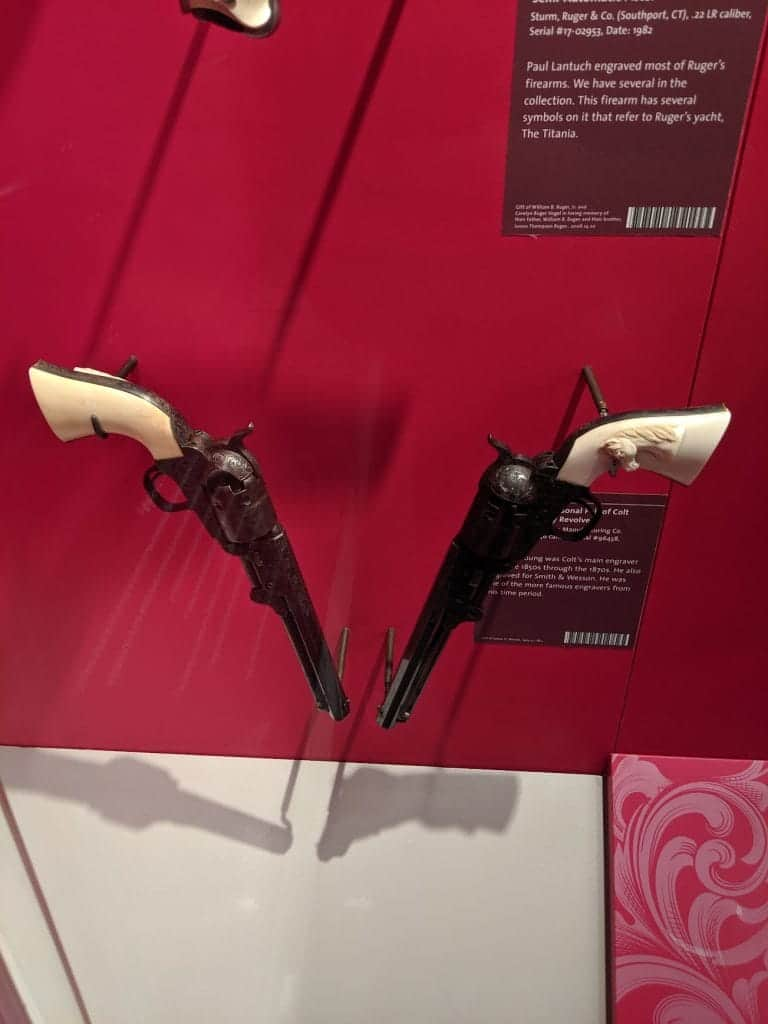
The Model 1851 Navy revolver is the gun that really put Colt on the map. You could argue that it was the earlier Walker or the later Peacemaker, but it was with the 1851 Navy that Colt’s guns made it into the hands of soldiers and civilians alike by the tens of thousands.
Sam Colt was known for giving away lavishly embellished firearms to friends and other people from whom he could benefit politically, but this pair of pistols is believed to have been made for the man himself.
The pair of guns wear matching gorgeous carved ivory grips with a horse head motif on each one, and they are exceptionally engraved by Gustave Young, who was one of the 19th-century master engravers and was Colt’s principal engraver from the 1850s to the 1870s.
When creating a pair of presentation guns, it is quite common for the pair to bear sequential serial numbers. These two 1851 Navy revolvers are close, but not sequential; there’s one digit in between them. The serial numbers date the guns to 1860, just two short years before Sam Colt’s untimely death in 1862 at the age of 47.
Buffalo Bill Cody’s Winchester 1895 Carbine
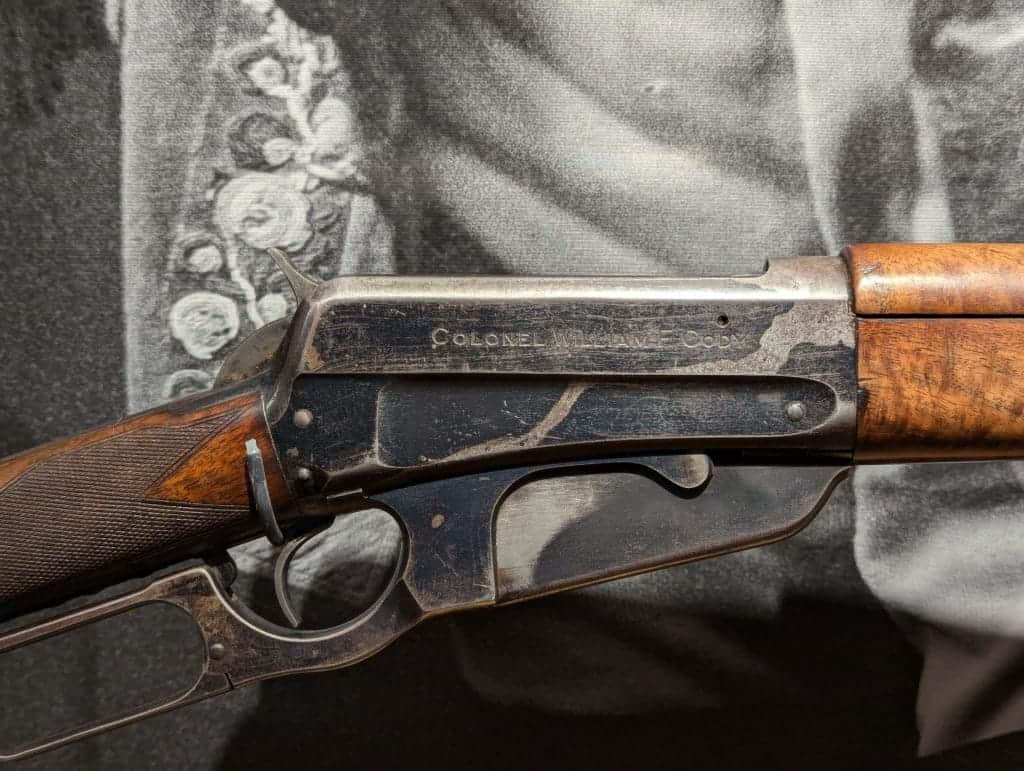
Guns that claim to be linked to historical figures are everywhere, but most of them can’t back up said claims. That’s not the case with this Winchester that belonged to William F. Cody, better known as Buffalo Bill Cody. As the founder of Buffalo Bill’s Wild West, the iconic traveling show that took the American West to audiences across the world, Cody owned a number of Winchester rifles.
Manufactured in 1899, the provenance of this Model 1895 is rock solid. The connection to Cody can be traced all the way back to Winchester's factory records, which include notes about the engraved plate signifying that the gun was a gift to the western legend himself. There are also photos of Cody, hunting near Pahaska outside of Yellowstone, with a Winchester 1895 that visually matches this rifle. It’s possible that they are one and the same.
Cutaway Colt Government Model
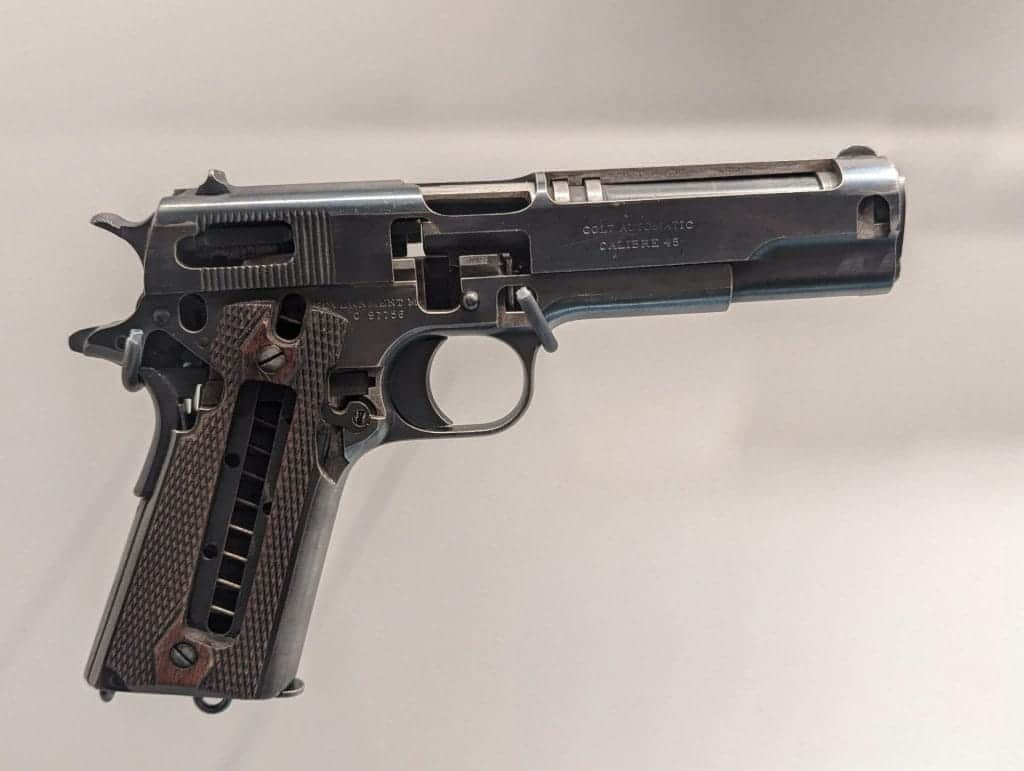
At first glance, this cutaway Colt pistol doesn’t look like anything terribly special. Sure, it’s neat to see a cutaway gun and get a glimpse of how all of the parts interact with one another, but this gun is much more than that.
This Government Model is a historical “what if.” The serial number puts this gun’s date of manufacture in 1918, which is right when the United States was getting heavily involved in World War I. Fighting forces in the US were woefully under strength, and as a result, so, too, was the supply of guns and other items needed to equip the soldiers who would soon be going to the Western Front.
Arms manufacturers couldn’t keep up with demand, so contracts were given out to a number of manufacturers that weren’t normally in that specific line of work. That’s how Winchester ended up with a government contract in 1918 to make M1911 pistols. This cutaway Colt Government Model was sent from Colt to Winchester as a model to demonstrate construction and function as they prepared to make pistols for the war effort.
Of course, World War I ended a few months later and Winchester never produced a single pistol. So, this 1911 stands as a silent testament to what could have been had an agreement to cease hostilities not been reached at 11 am on November 11, 1918.
Holland & Holland 2 Gauge Punt Gun
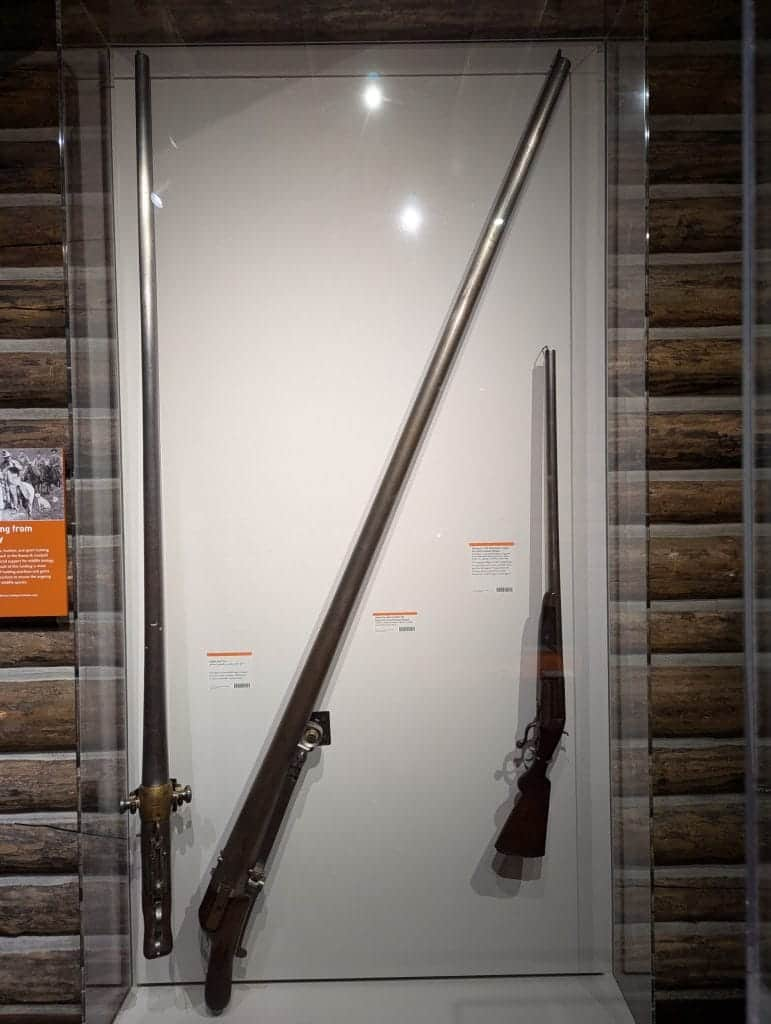
Last on our list of must-see guns at the Cody Firearms Museum is the Holland & Holland 2 Gauge Punt Gun. Punt guns were used for commercial hunting of waterfowl around the turn of the 20th century. These were essentially just incredibly large shotguns that were designed to take down the maximum amount of fowl possible in a single shot. In an era before proactive wildlife conservation laws, these guns could be found mounted in punt boats on countless waterways.
While many punt guns were either homemade and/or rather crude in design, this one was made by the esteemed British rifle and shotgun maker Holland & Holland. That’s a testament to just how in-demand punt guns were at one time. Just how big were these guns? Well, this particular one is right around eight feet long and weighs a whopping 150 pounds. A gun that size fires a sizable payload of around eight ounces or half a pound.
Have you been to the Cody Firearms Museum? Tell us all about it in the comments!
